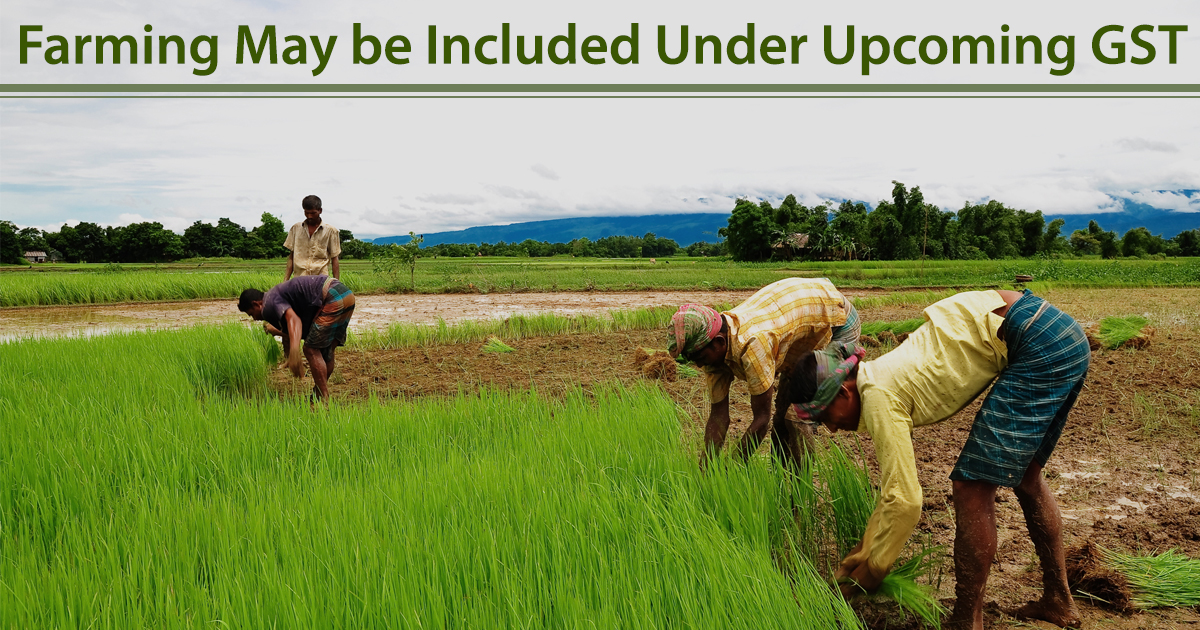Earlier, the farm activities were the safe and raised occupation of the nation among the farming community and recently, the GST which is approaching at an accelerating speed has given some thoughts and ideas to include the farm practice under GST. India has joined another meaning of “agriculturalist” in the goods and services tax law to empower select farm things to be brought under the tax net across the country. While farmers won’t need to enroll to pay the tax, enlisted purchasers may need to gather the require on a ‘reverse charge’ premise, like the purchase tax rule received in Punjab and Haryana.
Most farms production will probably be exempted from the new tax and some cash crops are relied upon to pull in the edge rate. According to the most recent definition, an agriculturalist is a man or a Hindu unified family undertaking development of land by claim work or work of the family or by hirelings paid wages in cash or kind or by procured work under individual supervision or supervision by any relative.
Read Also: GST Impact on Agriculture Sector in India
The draft central and integrated GST laws, which were affirmed by the GST Council, have consolidated the new definition. The Bills are required to be presented in the budget session of Parliament. Pratik Jain, indirect tax leader at PwC mentioned that “Expansion of the definition of agriculturalist would ensure that the entire activity of agriculture would get consistent GST treatment, irrespective of the manner in which cultivation is done.”
The prior draft contained a nonspecific definition as it mentioned that agriculturalists are the individuals who develop the land by and by with the end goal of horticulture. Agribusiness itself was characterized independently in the before draft as tt said that agribusiness, with all its linguistic varieties and related expressions, incorporates horticulture, agriculture, sericulture, the raising of crops, grass or garden create and likewise nibbling, yet does exclude dairy farming, poultry farming, stock reproducing, the simple cutting of wood or grass, social event of organic product, raising of man-made woodland or raising of seedlings or plants. Starting at now, the understanding is that crude Agri commodities such as wheat and grains might be excluded from GST while handled products, for example, stuffed rice would pull in the tax, in spite of the fact that at a lower rate.
Recommended: GST Impact on Common Man in India
GST, which replaces different central taxes including extract duty, service tax, countervailing obligation and state taxes, for example, value-added tax, entry tax, octroi and purchase tax with a solitary impose, is proposed to be actualized from July 1.











We need articles and news related to dairy and food processing industryfor our publications
Read here: http://blog.saginfotech.com/gst-impact-on-dairy-sector-in-india